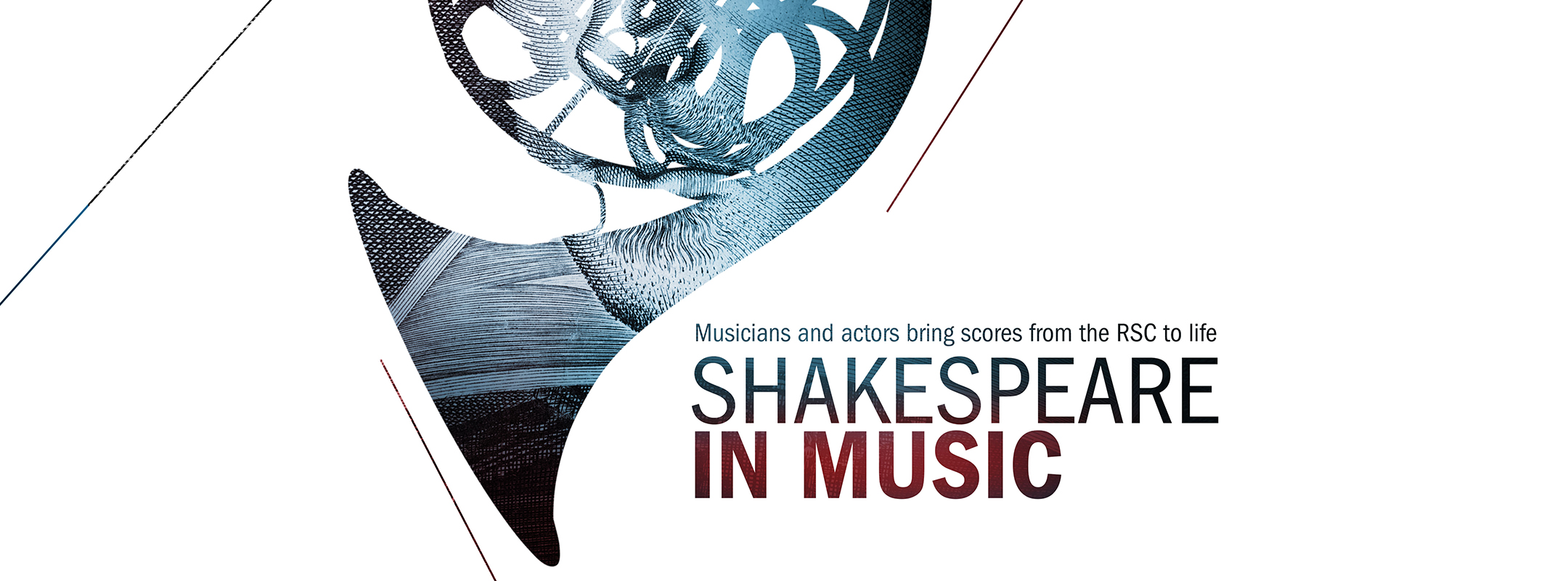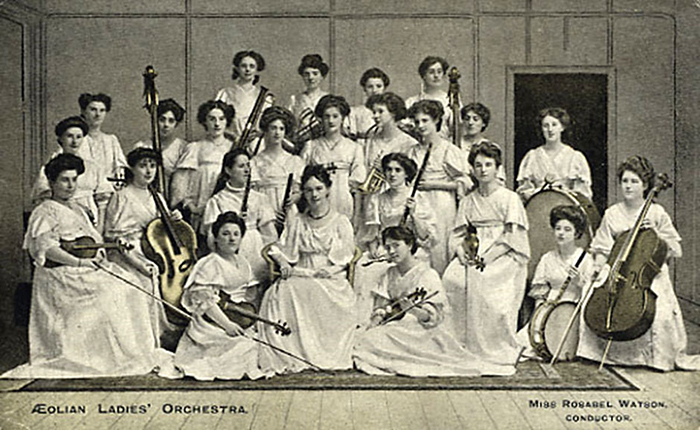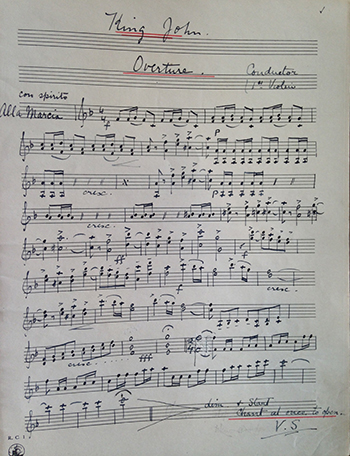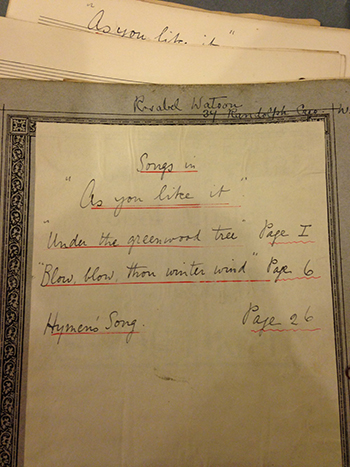
Music Operations Manager, Royal Shakespeare Company
Alongside getting new RSC productions on-stage, Richard has spent years delving into the company's remarkable archive and rediscovering scores from plays over the past century. Now, Southbank Sinfonia will bring a selection back to life in a special concert.
I have to admit to becoming really keen on a name from the early years of the RSC: Rosabel Watson – who worked in Stratford on and off between c. 1916 and c. 1944 as a Music Director.
Earlier, she is mentioned in The Common Cause, a Suffragist newspaper, in 1910 where, at a reception for the President and Council of the National Union of Women’s Suffrage Societies given by Lady Frances Balfour, “….Miss Rosabel Watson’s orchestra will give a programme of music. Miss Watson’s band is composed largely, if not entirely, of ardent suffragists who are also excellent artistes…” The Aeolian Ladies Orchestra was the first all-female Orchestra in the UK.
She was a double bass player, a viola player and also was described as the “best woman horn-player in England”; evidently she was an excellent all-round musician. That’s her in the middle of the picture below, with the conductor’s baton.

Rosabel was well established in the profession when in the programme for The Winter’s Tale (2 August 1916), it states that she arranged the music for entr’actes. It seems that her orchestra played pre-show too, although, it being 1916, records are scant.

Nine years later, the programme for King John (1925) includes the note “The Orchestra under the direction of Miss Rosabel Watson.” There is no composer noted anywhere on the score or parts. Did she write the music too? I suspect it was almost certainly her, or possibly Albert Cazabon, but the manuscript is certainly in her hand. Even the archive’s original production records neglect to mention who the composer was. Nice record-keeping, folks!
Much of her original music is now in the papers of Chris Castor at the Harry Ransom Center at The University of Texas at Austin; there are others in the Donald Wolfit Papers – perhaps an answer to her story lies somewhere in that archive. A short biographical note in the Texas papers says she was “A bright little lady with bright piercing eyes. She proved to be a loyal and sympathetic friend. She had served for twelve years at Stratford on Avon and worked for many years at the Open Air Regent’s Park under Robert Atkins.”

Rosabel was here again in 1944, when she worked on As You Like It. Arthur Dulay wrote the music, but Rosabel arranged the songs, from Thomas Arne. She died in 1959, a fleeting shadowy figure, a pioneer in a man’s world. It will be fun to put flesh on the bare bones, and there will be more news if I find it, of the bright little lady.